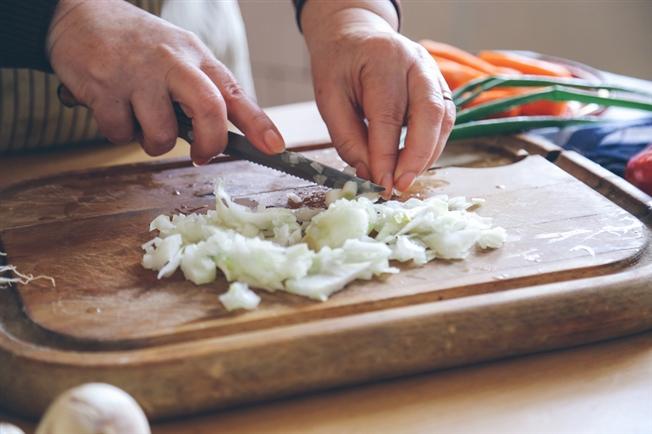Nutrition for the cancer survivor

Undergoing treatment for cancer can be an emotionally and physically demanding process. So, when you receive a clean bill of health from your oncology care team, there is certainly cause for celebration. But, while your cancer treatment may be behind you, survivorship still requires individuals to be diligent about following a healthy lifestyle—including a nutritious diet.
“It’s very important for individuals with cancer to follow a healthy diet, even as part of a survivorship program,” explains Carolyn Farhy, RD, LDN, oncology outpatient dietitian at Lankenau Medical Center, part of Main Line Health. “Proper nutrition can reduce the likelihood of a cancer recurrence, and a number of other chronic health issues as well, including diabetes, osteoporosis, and heart disease.”
While your nutrition plan may vary depending on your treatment and health history, Farhy says there are a few standard pieces of advice you can remember when it comes to following a healthy diet.
Boost your antioxidants
Antioxidants are substances that help prevent disease by ridding the body of free radicals, a chemical that can damage the DNA and contribute to the development of cancer. These free radicals can come from any number of different sources, including those that are in our control—like cigarette smoke, alcohol, and sunlight—and out of our control—like aging, injury, and exposure to radiation.
For this reason, it’s important to maintain a diet rich in antioxidants during and after your cancer treatment.
Shop for: Foods that include beta-carotene, Vitamins C and E, and selenium, like citrus fruits, turkey, chicken breast, nuts, spinach, carrots and squash.
Pick (and eat!) a variety of bright produce
Ever wonder what gives fruits and veggies their bright color? Thank phytochemicals! These naturally-occurring plant chemicals provide the produce we eat with color, odor, and flavor. But that’s not all they can do.
“Phytochemicals don’t just make our produce look good—they do good things for our bodies, too. These chemicals have the ability to ward off cancer by suppressing the growth rate of new cancer cells and protecting the body from factors like inflammation and oxidative damage that can foster the growth of new cancer cells,” explains Farhy. “For cancer survivors or those undergoing treatment, phytochemicals can also reduce the damage that cancer cells have done to the body and help boost the immune system.”
Shop for: Bright colors! Look for watermelon, tomatoes, oranges, leafy greens, sweet potatoes, apricots, cantaloupe, eggplant, berries, avocado and kiwi.
Skip the salt, and flavor with spices
In addition to helping keep your sodium levels under control, opting to flavor your dishes with herbs and spices has a cancer-fighting benefit: it can boost your immune system!
Research has shown that two common spices, ginger and curry powder, prove to be very powerful in blocking cell development in the body. These spices won’t just help protect your body from cancer—they’ll help demolish cancer cells altogether.
Garlic is another spice that’s been touted for its ability to keep cancer at bay. The spice has been shown to improve DNA repair and decreasing the risk of cancer cells by killing existing cancer cells and preventing the creation of new ones.
Shop for: Ginger, curry powder, turmeric and garlic.
Hydrate, hydrate, hydrate
Feeling thirsty? Grab a cup of water…or two. Staying hydrated is essential to ensuring your body is healthy, and warding off illness.
“Water helps regulate your body temperature, it transports nutrients through your body, and it helps protect your organs and tissue, among many other things,” says Farhy. “It’s very important for cancer patients and survivors to stay hydrated, as dehydration can be especially common among this population.”
Shop for: What else? Water! But if drinking plain water sounds like it will be too bland for you, opt for other hydrating options like green tea, flavored water, or sucking on ice chips or popsicles.
Farhy reminds cancer survivors that every individual’s needs will vary and, if you have questions, to talk to your oncologist.
“The most important thing to remember is that a healthy diet is one of the many ways that individuals can prevent certain cancers from developing or recurring, and is one piece of an overall healthy lifestyle,” she says. Main Line Health has four Cancer Centers dedicated to the early detection, treatment, and prevention of breast, prostate, colorectal, lung, and other cancers. Visit our website to learn more about Main Line Health cancer services.
 Content you want, delivered to your inbox
Content you want, delivered to your inbox
Want to get the latest health and wellness articles delivered right to your inbox?
Subscribe to the Well Ahead Newsletter.
